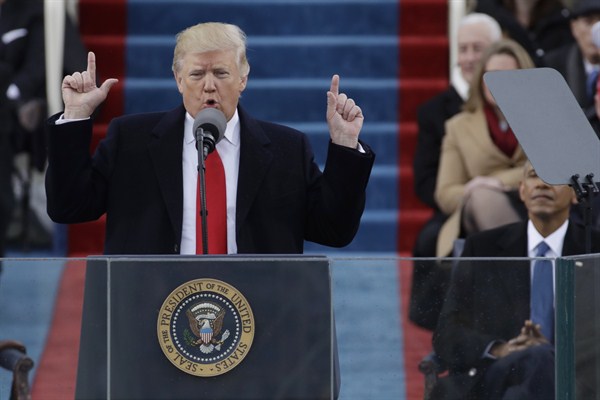With his inauguration address last Friday, President Donald Trump announced to Americans and the world that the “America First” era had arrived. No longer will the U.S. put the interests of other nations ahead of its own. No longer will America’s global role as backstop of the international order take priority over its own domestic needs.
The address represents a sea change in America’s foreign policy discourse. It is not just the words that are different, but the very grammar and syntax of its logic, which calls into question the international order that the U.S. built and backstopped over the past 70 years. But is this iconoclastic challenge to the U.S. foreign policy orthodoxy as alarming as it seems?
Since the end of World War II, Washington’s engagement with the world has been based on the twin assumptions born of the costs of that conflict: that distant crises can be ignored only at America’s peril, and that meeting these crises early and head-on is the most cost-effective way of securing America’s interests. In short, America bore a disproportionate burden in maintaining global order not out of charity, but out of enlightened self-interest.

